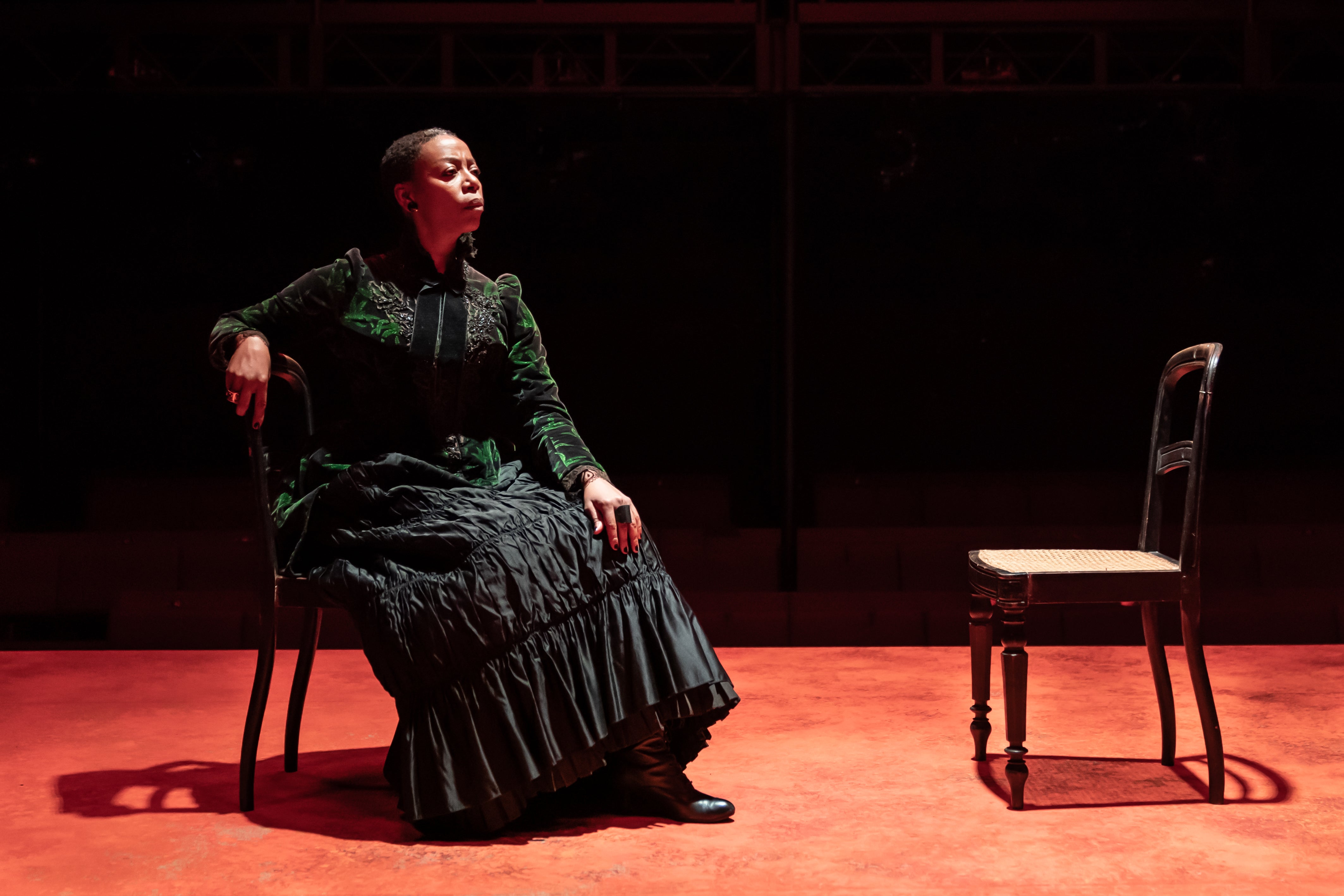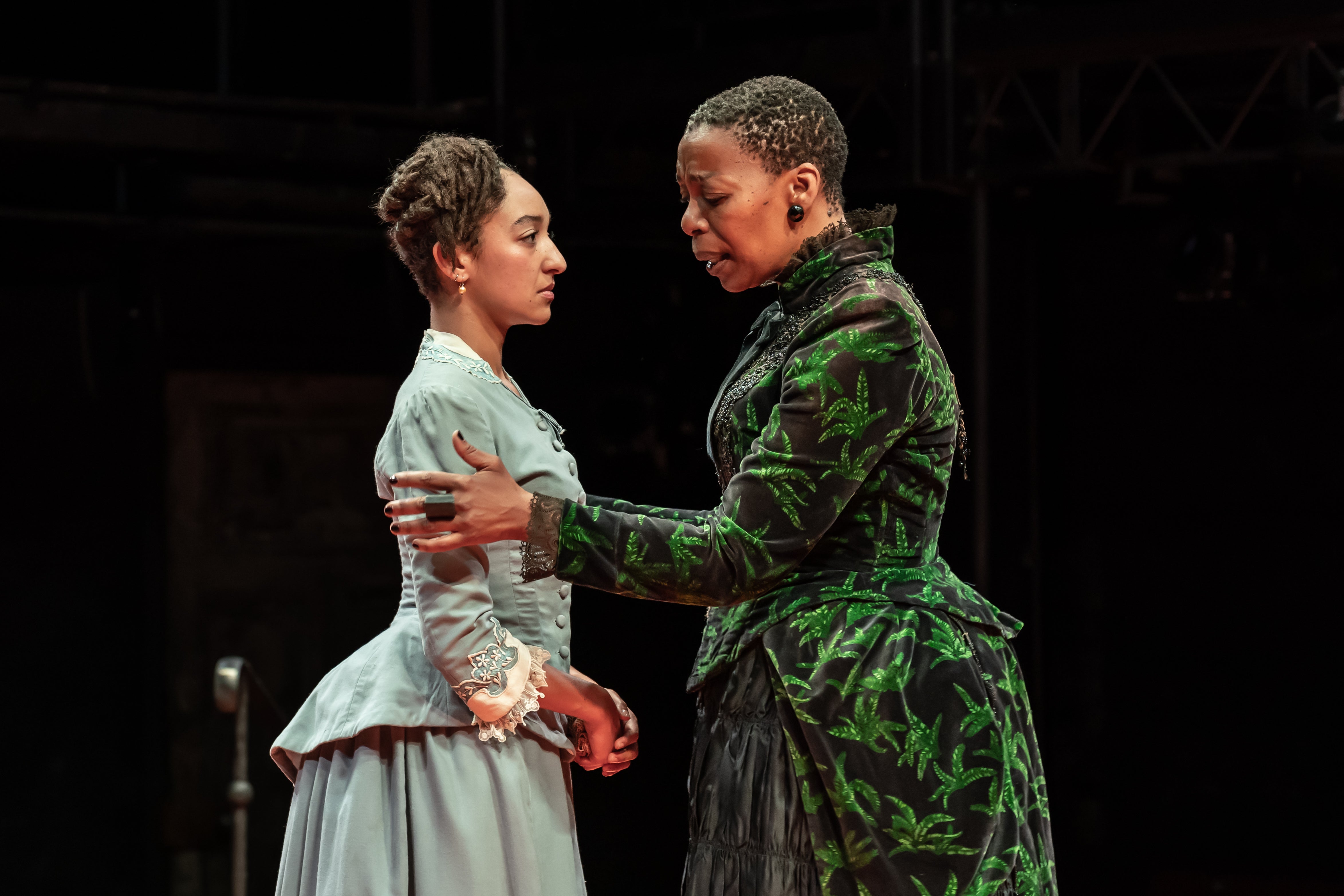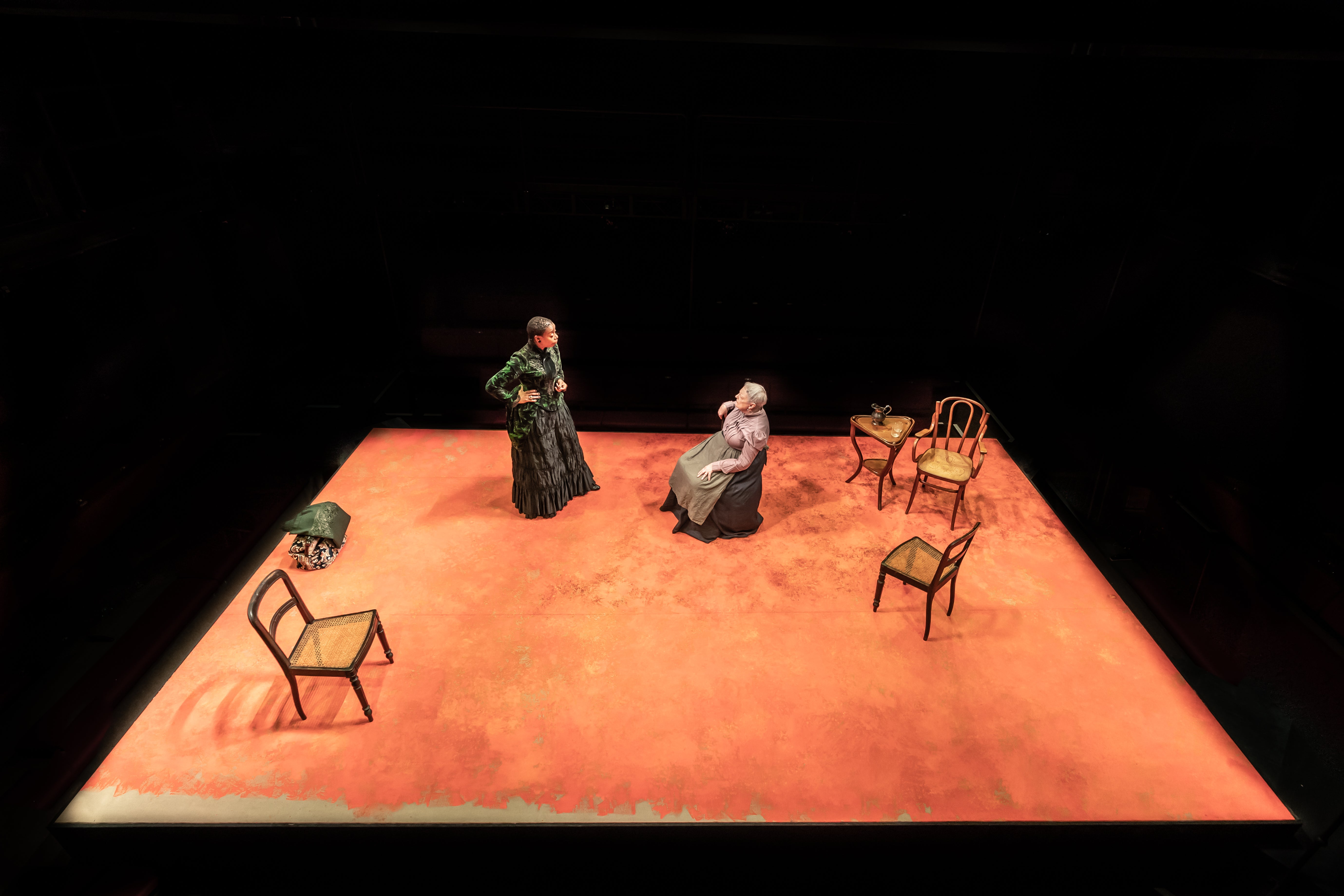A Doll’s House, Part 2 review: A bit of Ibsen fanfic that’s more of a think piece than a drama
Noma Dumezweni stars in Lucas Hnath’s schematic Broadway hit about what Nora Helmer did next

“Marriage is cruel and destroys people’s lives.” I mean… it’s a take. In Lucas Hnath’s sequel to Ibsen’s 1879 proto-feminist drama, we find out what Nora Helmer did next – and it seems she’s become some kind of anti-marriage influencer. After leaving her husband and abandoning her children, she got herself a book deal. Well, they do say everything is copy.
A Doll’s House ends with one of the defining moments of modern drama: the slam of a door, as Nora bravely walks into her future, alone. In Part 2, the references are immediate: it begins with the sound of a knock at the door. Fifteen years have passed, and Nora (Noma Dumezweni) is back to sort some belated life admin. Torvald (Brian F O’Byrne), we discover, never signed the divorce papers. The pair are still married. Nora fears she’ll be exposed as both a con artist and a criminal; she’s been behaving in ways that married women aren’t supposed to (read: spending money and Doing It a lot). Ideally, she doesn’t want to talk to her children. She’s also reacquainted with nursemaid Anne Marie (June Watson), who informs her everyone thought she was dead.
Is this meta-fiction? Or Ibsen fanfic? Either way, it’s a pretty niche kink for a hot summer’s night. Hnath’s play, more of a think piece than a drama, was a hit on Broadway in 2017 and won Laurie Metcalf a Tony. For the UK premiere, directed by James Macdonald, Rae Smith has put a house on stage; when the play begins, the roof raises up. People gasp. But if we thought we were about to see the lid lifted on something, the interior is sparser.

It’s clear early on – when Nora goes on a spiel about marriage – that this will be a schematic evening. “Twenty to 30 years from now, marriage will be a thing of the past,” she argues. Some of Hnath’s questions are compelling and unexpected – who has access to the search for selfhood? – but others feel contrived. The fact that Hnath writes in a modern vernacular – Nora talks about her “best self” – muddies the thinking. If we’re holding these characters to modern standards, it’s unclear whether we’re debating a 19th-century idea of marriage or a more contemporary one, so it ends up feeling academic. The plot’s twists and turns depend a little too much on people not bothering to fill in forms. Who knew that the patriarchy was so reliant on petty bureaucracy?
More compelling is Hnath’s skill at making us switch sympathies. “You’ve made a lot of assumptions,” says Nora’s daughter Emmy. It feels like an indictment of our current bad-faith discourse. We see Nora disregard Torvald’s pain. And yet, for her, there’s far more than hurt feelings at stake. In nursemaid Anne Marie, who brought up Nora’s children at the expense of her own, we’re reminded that women’s independence is usually enabled by the labour of other women. Both characters felt they had no choice but to leave their children – and yet the distinction between economic and spiritual needs is stark.

The cast make the Donmar crackle with contained fury. Dumezweni’s straight-backed Nora is always arranging her posture, occasionally clenching a fist behind her back, while O’Byrne’s Torvald often cannot physically face her. As their daughter Emmy, Patricia Allison is all weaponised cheerfulness, while Watson’s Anne Marie eventually gets fed up and just starts swearing. “F*** you, Nora,” she spits.
As the play ends, Nora tries to articulate how deeply male voices and expectations have been embedded into her psyche. It’s all the chewier given that she’s written by two men – Hnath and Ibsen. The return of that legendary door slam at the end is a startling full stop. Feminism in action, or the punctuation of the patriarchy?
‘A Doll’s House, Part 2’ runs at the Donmar Warehouse until 6 August
Join our commenting forum
Join thought-provoking conversations, follow other Independent readers and see their replies
Comments
Bookmark popover
Removed from bookmarks